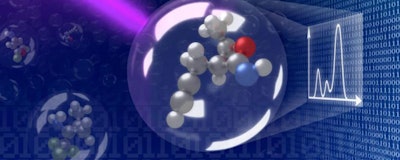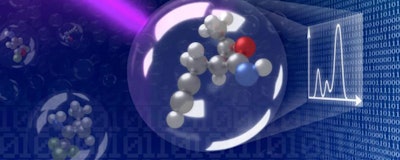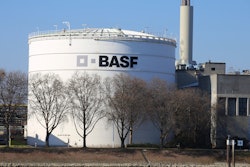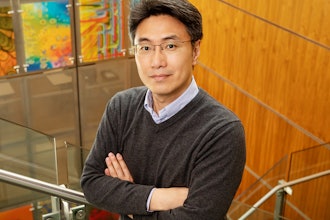
 Kenny Walter, Digital Reporter, R&D Magazine
Kenny Walter, Digital Reporter, R&D Magazine A research team from Aalto University and the Technical University of Denmark has created an artificial intelligence (AI) technique that they hope will accelerate the development of new technologies like wearable electronics and flexible solar panels.
The technology, dubbed ARTIST (Artificial Intelligence for Spectroscopy), can determine instantaneously how a specific molecule will react to light—essential knowledge for creating materials used for burgeoning technologies.
In the study, the researchers compared the performance of three deep neural network architectures to evaluate the effect of model choice on the learning quality. They performed both training and testing on consistently computed spectral data to exclusively quantify AI performance and eliminate other discrepancies.
Ultimately, they demonstrated that deep neural networks could learn spectra to 97 percent accuracy and peak positions to within 0.19 eV. The new neural networks infer the spectra directly from the molecular structure without requiring additional auxiliary input. They also found that neural networks could work well with smaller datasets if the network architecture is sophisticated enough.
Generally, scientists examine how molecules react to external stimuli with spectroscopy, a widely used technique that probes the internal properties of materials by observing their response to outside factors like light. While this has proven to be an effective research method, it is also time consuming, expensive and can be severely limited.
However, ARTIST is seen as an improvement in determining the response of light of individual molecules.
 ARTIST, which stands for Artificial Intelligence for Spectroscopy, instantly determines how a molecule will react to light. (Jari Järvi/Aalto University)
ARTIST, which stands for Artificial Intelligence for Spectroscopy, instantly determines how a molecule will react to light. (Jari Järvi/Aalto University)“Normally, to find the best molecules for devices, we have to combine previous knowledge with some degree of chemical intuition,” Milica Todorovic, a postdoctoral researcher at Aalto University, said in a statement. “Checking their individual spectra is then a trial-and-error process that can stretch weeks or months, depending on the number of molecules that might fit the job. Our AI gives you these properties instantly.”
The main benefits of ARTIST is that it is both fast and accurate, enabling a speedier process of developing flexible electronics, including light-emitting diodes or paper with screen-like abilities, as well as better batteries, catalysts and new compounds with carefully selected colors.
After just a few weeks, the researchers trained the artificial intelligence system with a dataset of more than 132,000 organic molecules and found that ARTIST could predict with high accuracy how those molecules and those similar in nature will react to a stream of light.
The researchers hope they can expand the abilities of the system by training ARTIST with even more data.
“Enormous amounts of spectroscopy information sit in labs around the world,” Aalto University Professor Patrick Rinke said in a statement. “We want to keep training ARTIST with further large datasets so that it can one day learn continuously as more and more data comes in.”
The researchers plan to release the ARTIST system on an open science platform this year. The program is currently available to be used upon request.
Previous attempts to use artificial intelligence for natural and material sciences have largely focused on scalar quantities like bandgaps and ionization potentials.
The study was published in Advanced Science.






















